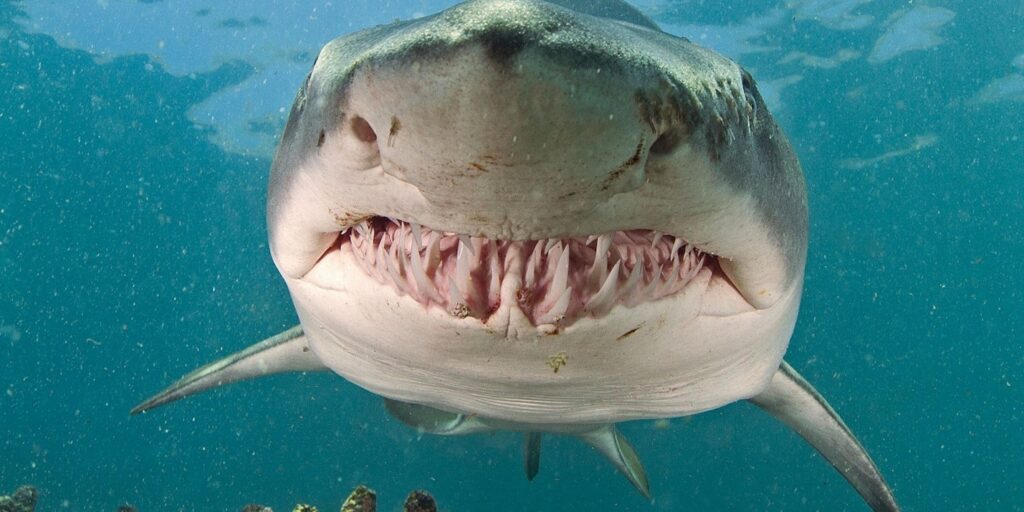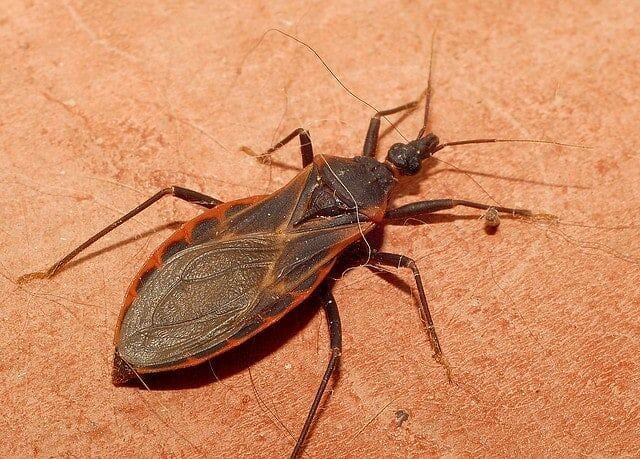The natural world is home to creatures both fascinating and fearsome, and among them, some are the most dangerous animals on Earth.
From the mighty to the microscopic, these creatures can pose a significant threat to human life.
The Most Dangerous Animals
Sharks

Often portrayed as threatening predators, sharks, including the great white, bull, and tiger sharks, are responsible for an average of six to seven human deaths annually worldwide. Their bites are rarely fatal, and you have a 1 in almost 3.5 million chance of encountering a deadly shark attack.
Elephants

Elephants, known for their intelligence and grace, cause around 500 human deaths each year. These gentle giants can turn aggressive when threatened or provoked, making close encounters potentially lethal.
Hippopotamuses

Hippos, while seemingly docile, are responsible for approximately 500 human fatalities annually. Their reputation for territorial aggression and swift, brutal attacks on boats or intruders earns them a spot on this list.
Tsetse Flies

Found in tropical Africa, tsetse flies transmit the deadly parasite causing African sleeping sickness, claiming an estimated 10,000 lives each year. A lack of medical resources in these regions compounds the fatality rate.
Kissing Bugs

Kissing bugs, named for their tendency to bite around the mouth, transmit Chagas disease. This parasitic infection results in 12,000 to 15,000 fatalities annually, primarily in Central and South America.
Crocodiles

Crocodiles, known for their immense size, power, and aggression, cause between 1,000 to 5,000 human deaths annually. They are among the few animals on this list that actively prey on humans.
Freshwater Snails

Surprisingly, freshwater snails transmit the parasitic infection schistosomiasis, affecting several million people each year and resulting in 20,000 to 200,000 fatalities due to organ failure.
Dogs/Wolves

Dogs and wolves, while often considered companions, can pose a significant threat. Dog attacks account for 30 to 50 deaths in the United States each year, and canine-transmitted rabies causes 40,000 to 50,000 annual fatalities.
Snakes

Fear of snakes, or ophidiophobia, is justified, with snakes causing over 100,000 human fatalities annually. Venoms and the lack of antivenom treatments contribute to high mortality, with species like the Indian saw-scaled viper being particularly deadly.
Mosquitoes

The unassuming mosquito tops the list as the deadliest animal on Earth, causing 750,000 to one million human deaths annually. Mosquitoes transmit diseases such as malaria, dengue fever, and Zika virus, with malaria alone accounting for over half a million fatalities.
The natural world’s deadliest animals pose significant threats to human life, whether through direct attacks, vectoring diseases, or toxic venom. While access to healthcare and improved medical resources can reduce mortality rates, these creatures continue to challenge our understanding of coexistence with the animal kingdom.



